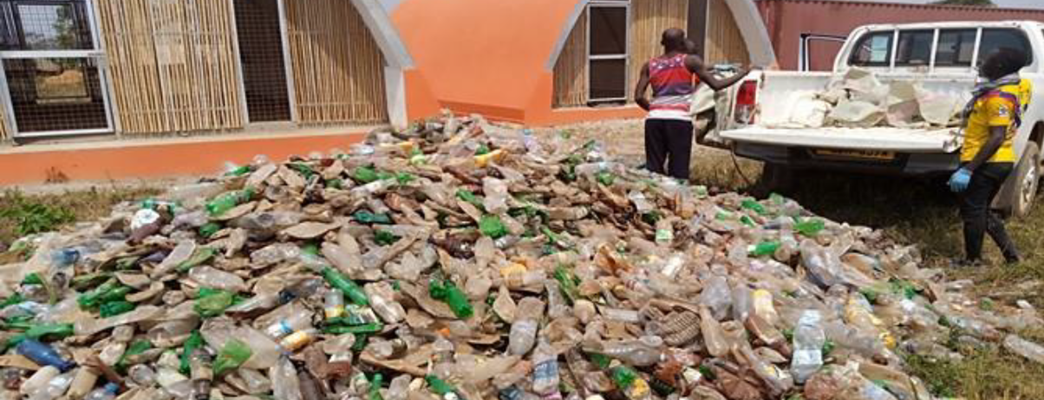More than 150 people participated in the webinar “Addressing plastic pollution in humanitarian operations through innovation partnerships”, which was hosted by the delegation and Innovation Norway. During the event, humanitarian organisations and private actors shared their experiences related to the ongoing plastics crisis.
- 300 million ton of plastics is produced annually, of which 40% is packaging. Only 9% is recycled and every year eight million tons end up in the ocean, said Anna Liwak, Sustainable Development Specialist at the ICRC.
There is little data from humanitarian operations specifically, but vulnerable groups are those often most exposed and who suffer the most from these challenges. As users of plastics, humanitarian organisations play an important role.
-We need to treat plastics in this sector as a disaster. The humanitarian sector should think about plastics as a hazard, that it needs to respond to, said Andrew Lamb, Global Innovation Lead at Field Ready.
During the session, five projects addressing plastic pollution in humanitarian contexts were presented. In Uganda, Care has developed a solution to turn plastic wate into valuable products that can be sold in the market for household use, farming or as construction materials.
-This shows that it is possible to create sustainable businesses even within a settlement, where the price point needs to be as low as possible, said Jonas Engberg from Care. -This project thus creates a circular business model that enables the value creation to remain within the settlement, in the hands of the people who need it the most.
Gemma Arthurson from IOM added that while assistance provides essential aid for people affected by crises, it also offers opportunities towards longer term development goals.
Other projects presented included a joint project by ICRC, WFP, and UNHCR looking at sustainable alternatives to polypropylene bags which are commonly used as packaging for food, commodities and basic relief items. In Turkey, based on a partnership between The Polyfloss Factory, Field Ready, and Engineers without Borders Norway, a pilot project has been set up developing small scale manufacturing capacities for shelter winterisation, transforming plastic waste into insulation products for warm and safe shelters. Finally, UNHCR presented a project in Sahrawi refugee camps in Algeria, where more than 1700 tons of plastic waste is generated per year, focusing on addressing the waste challenge while creating economic opportunities for the refugees.
-The plastics problem is largely due to the lack of good governance, and that the management of plastics across the whole life cycle has been underregulated, said Ambassador Mørch Smith. She pointed out that the amount of plastic waste generated is expected to double by 2040.
Norway recently co-organized a dialogue series together with Switzerland, Geneva Environment Network and other partners, called the Geneva Beat Plastic Dialogues. The dialogue series included eight well attended events over a four-month period, ranging from health and human rights to standards and trade.
-The series clearly showed the global attention and willingness to address the issue of plastics pollution and its intersection with relevant actors and agencies, said Ambassador Mørch Smith.
Since 2014, Norway has pushed for stronger global commitment to address marine plastic litter and plastic pollution, with a new global agreement as the most effective solution. In February, during the Fifth UN Environment Assembly online session, we heard many voices speaking out in favour of a new global agreement and the first ever Ministerial Conference on marine plastic litter and plastic pollution was announced by Germany, Ghana, Ecuador and Vietnam.
-This shows that there is a willingness to make progress to tackle the environmental consequences of plastic pollution. We need to continue to share our knowledge and explore solutions together. States, academia, humanitarian organisations, affected communities and private sector actors all need to be involved, said Mørch Smith.
-As users of plastics, humanitarian organisations need to be more aware of how they manage plastic waste, concluded moderator Safia Verjee from Kenya Red Cross: -Unless we come together and look for solutions in partnerships, this challenge will remain for years to come.
Read the full summary and see the recording here: Addressing plastic pollution in humanitarian operations through innovation partnerships | HNPW 2021 – Geneva Environment Network
